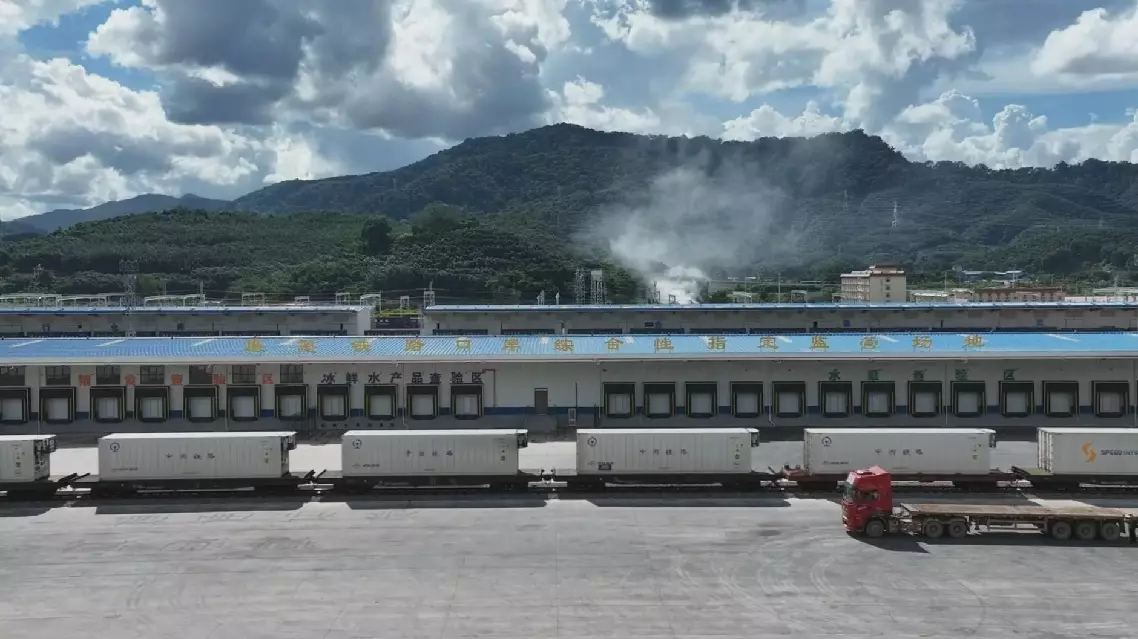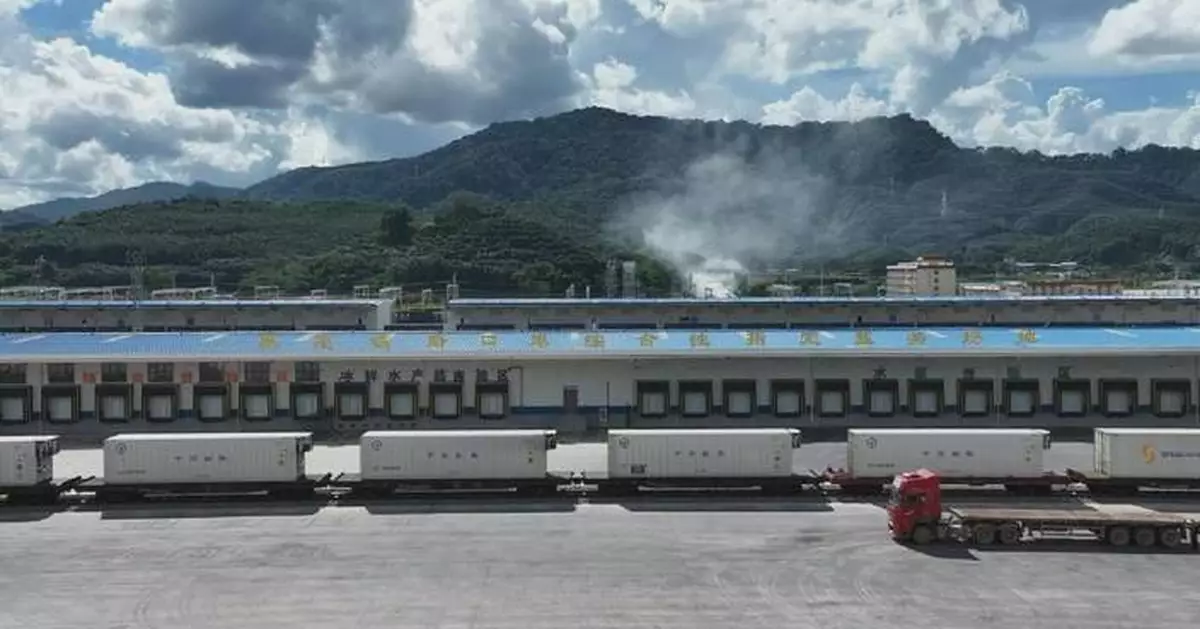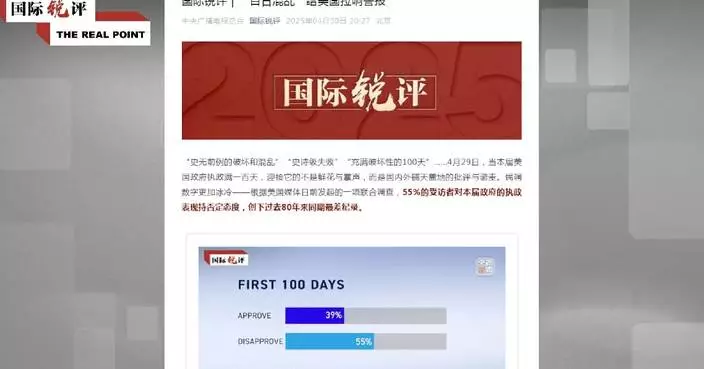Cross-border freight traffic on the China-Laos Railway saw continued growth in the first quarter of 2025, reflecting stronger trade ties between China and Laos, with significant year-on-year increases in both volume and value, according to Kunming Customs.
In the first three months of this year, import and export volume grew 9.2 percent to 1.508 million tons, with the value of goods transported rising 17.5 percent to 4.19 billion yuan (over 570 million U.S. dollars), the customs data shows.
The China-Laos Railway connects Kunming in southwest China's Yunnan Province with Vientiane, the capital of Laos. The 1,035-km railway, a landmark project of high-quality Belt and Road cooperation, started operation on Dec 3, 2021.
Since its opening, the China-Laos Railway has become a key trade conduit, with import and export volumes surpassing 12 million tons to date.

Cross-border freight traffic on China-Laos railway sees strong growth in Q1
China's National Development and Reform Commission (NDRC) will work with relevant departments and local authorities to take concrete steps to promote the implementation of the newly passed private sector promotion law, a landmark legislation concerning a vast economic force in the country, said an NDRC official.
China's top legislative body -the National People's Congress - passed the private sector promotion law on Wednesday, establishing a legal backing for the steady and healthy growth of the key sector, including more than 57 million private firms and over 100 million self-employed individuals.
This landmark law is China's first fundamental legislation dedicated to the private sector. It will bolster confidence among the vast community by improving the business environment, fostering innovation, and ensuring fair competition, according to NDRC, the country's top economic planner.
"The private sector promotion law has actively responded to the key concerns in the development of the private sector. Efforts are made to establish and improve relevant systems and enhance the enforceability of the systems, from ensuring fair competition, improving investment and financing environment, supporting technology innovation, focusing on regulated operation, optimizing services and guarantees, and improving rights and interest protection, to strengthening legal accountability, so as to ensure that all forms of ownership can equally utilize production factors by the law, participate in market competition fairly, receive equal legal protection, further unleash their complementary advantages, and pursue common development," said Liu Min, deputy director of Private Sector Development Bureau under NDRC.
Liu added NDRC will continue to work together with relevant departments and local authorities to improve supporting systems and mechanisms and take concrete steps to promote the implementation of the private sector promotion law.
"We will make continuous and increasing efforts to remove barriers to market access and to fair competition, to address the issue of overdue payments to private enterprises, to protect the lawful rights and interests of private businesses and entrepreneurs by the law, to implement various relief policies, to help private enterprises shoulder their responsibilities of the era, so as to help translate legal systems into concrete actions and tangible outcomes that promote the high-quality development of the private sector," said Liu.

Concrete steps to take for firmly implementing China's landmark private sector promotion law: official



















































